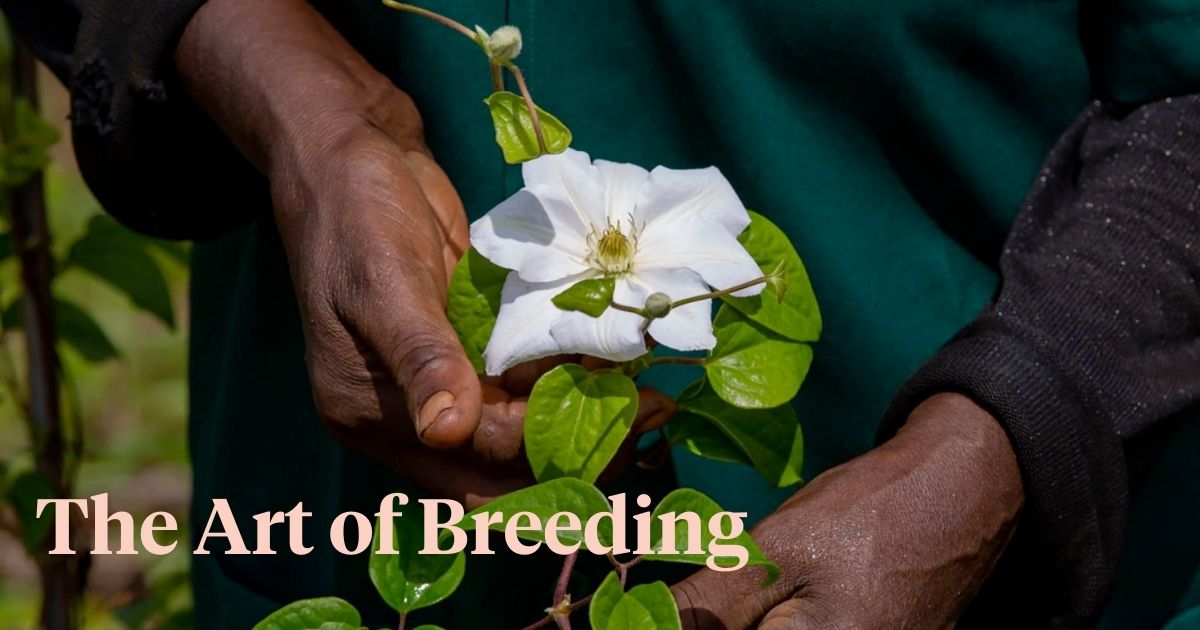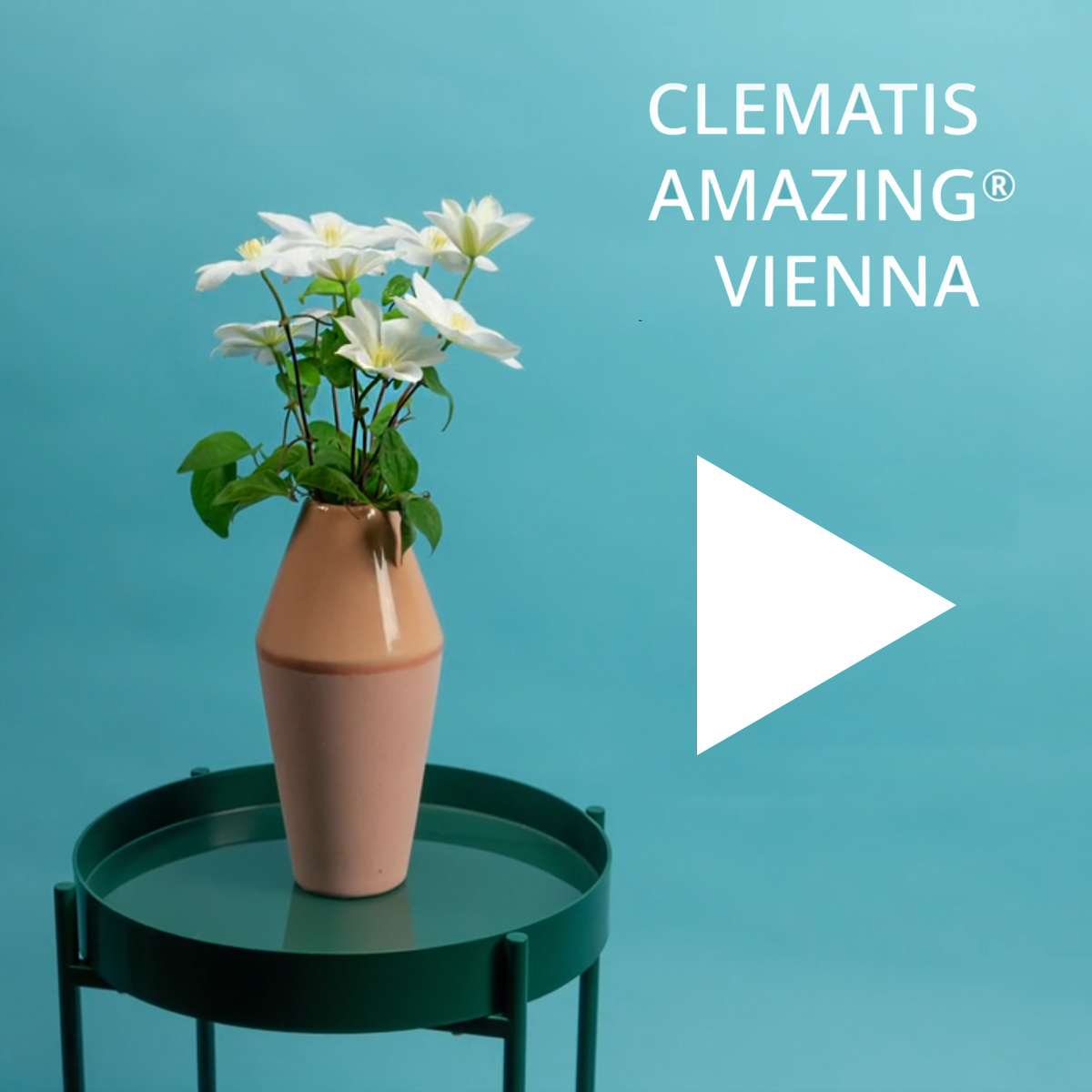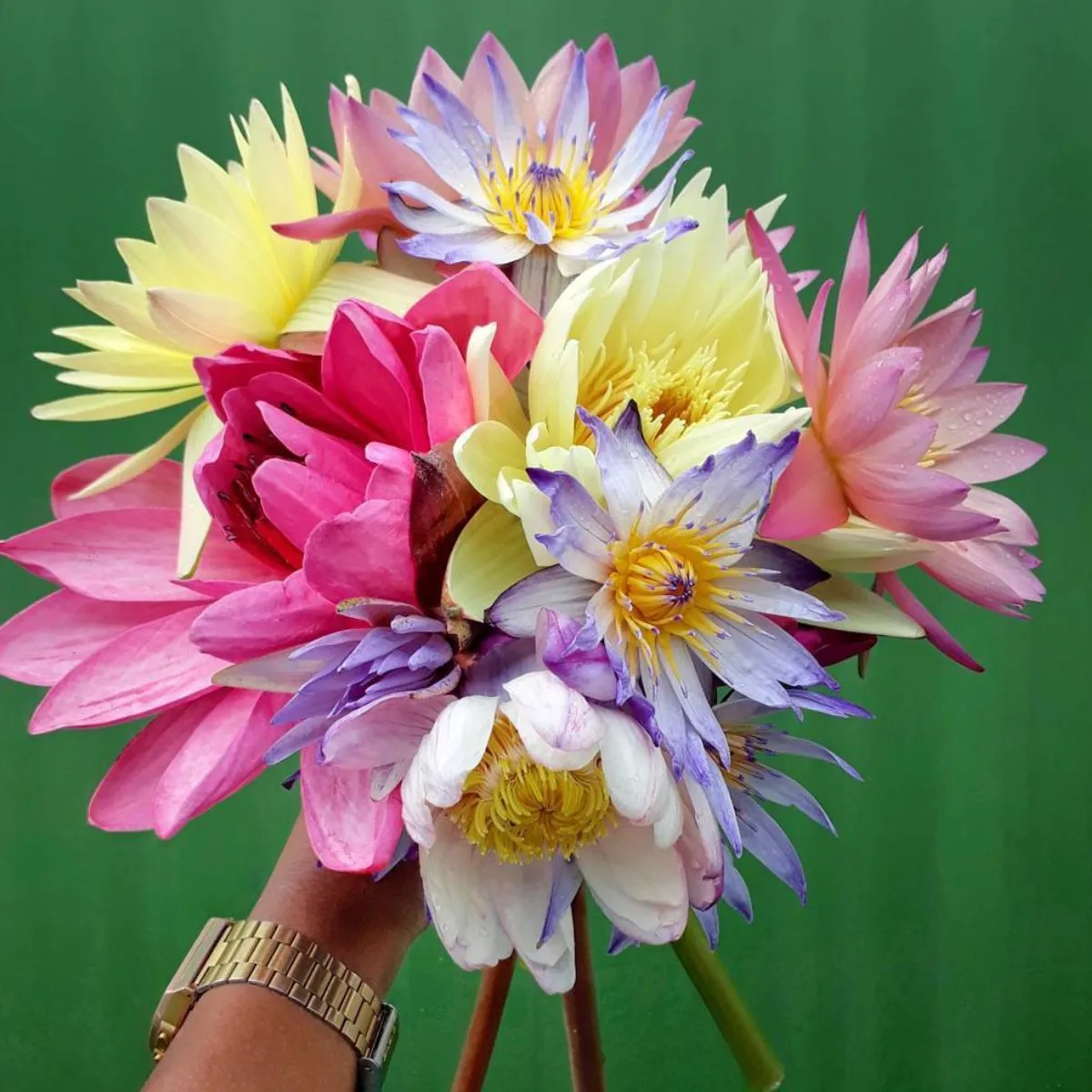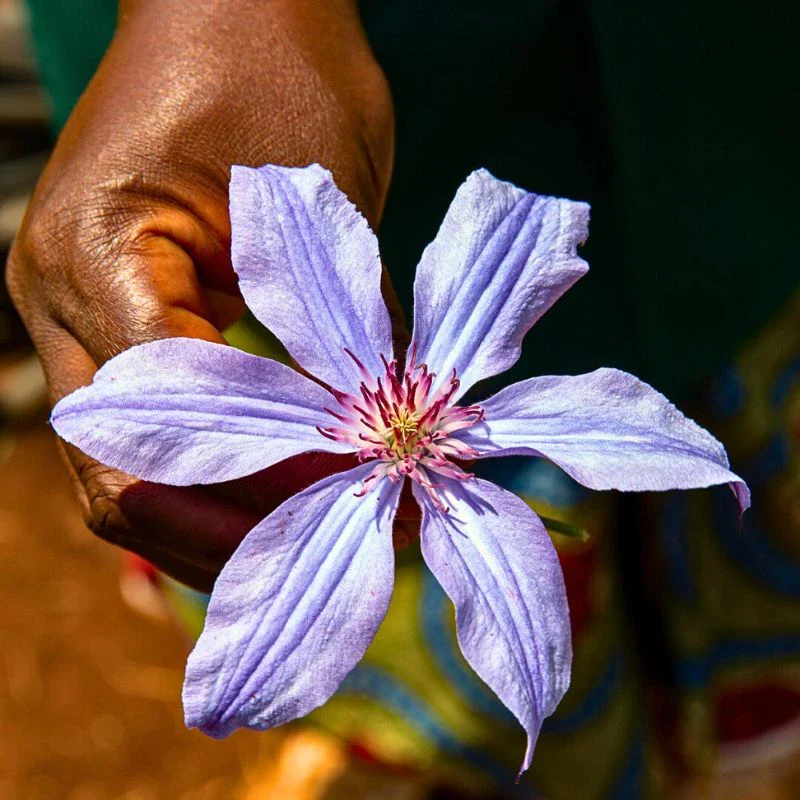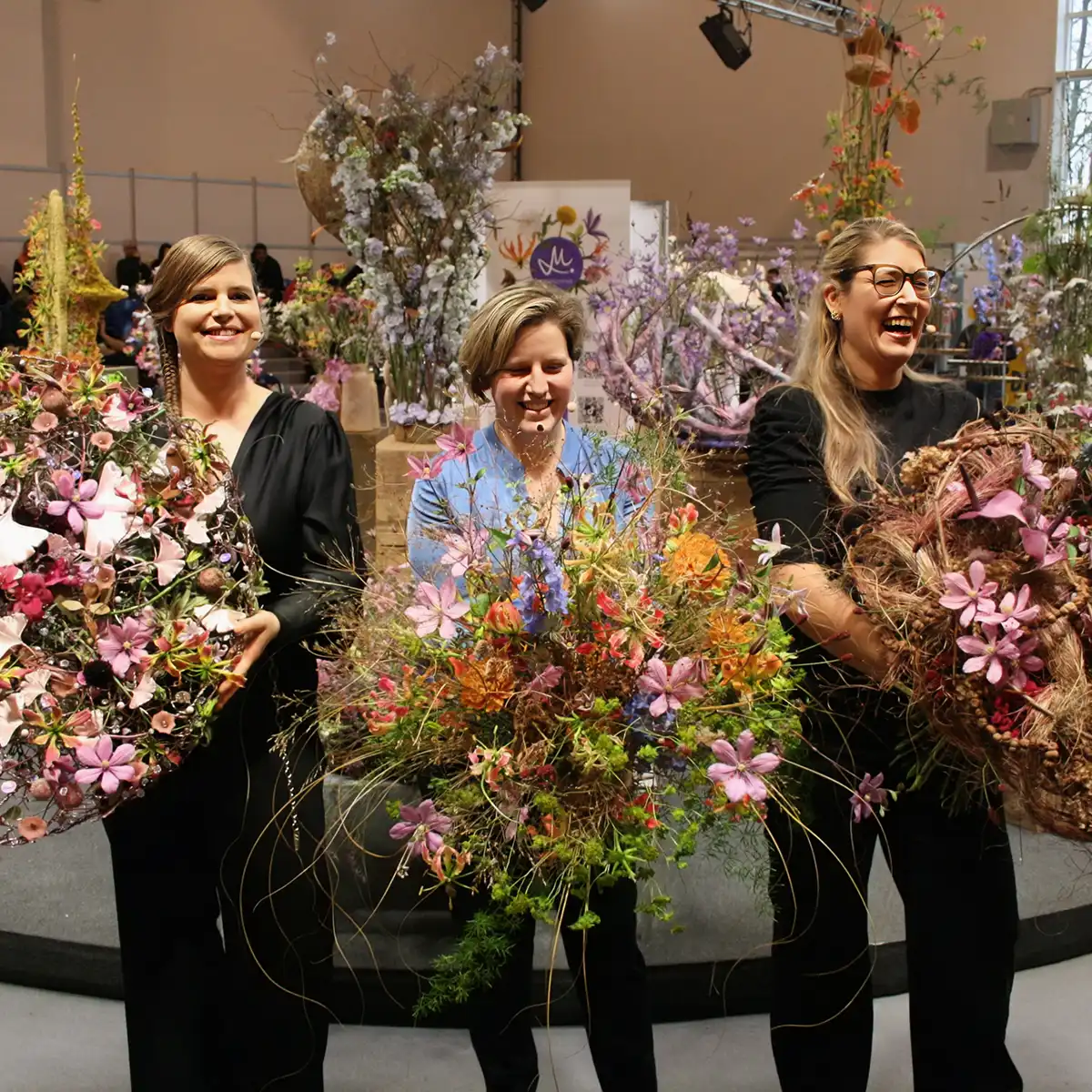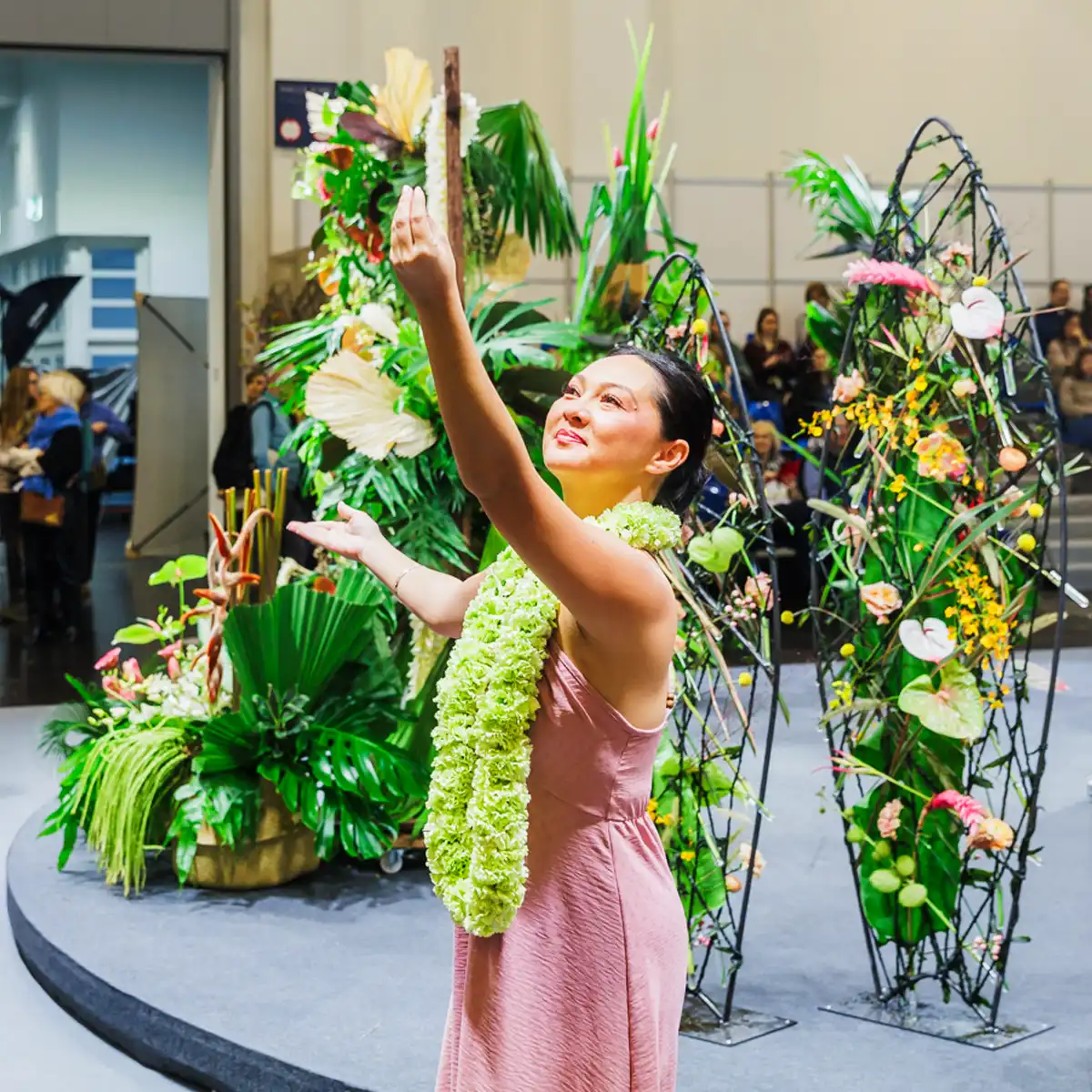Imagine that 99.9% of your work leads to nothing. Would you continue with it? But what if the 0.01% that remains is so unique that you do not want to stop? Exactly that's the Art of Breeding. We go back a century in time. Somewhere a clematis is used as a cut flower. WW II starts, and the cut flower disappears. A breeder goes looking for this ‘cut’ clematis in the ’90s and ends up in Japan. He sees opportunities to refine the clematis from a garden plant to a cut flower. The story starts...
A Deep Dive
This breeder is Jan van Zoest, the owner of the clematis nursery J. van Zoest B.V. Jan wants to continue developing this flower. But he notices that this flower is not easily placed in a vase. A breeding challenge, how can Jan find a clematis that holds well in a vase?

The process from breeding to introduction can take a decade. It's not easy, and very time-consuming. Jan is looking for a partner, someone who is just as fond of innovative species as he is. After having heard "not interested" several times, he arrives at Marginpar. And he immediately receives a resounding yes. The adventure begins... Jan van Zoest:
"Marginpar has stuck its neck out. This is not a ready-made product. None of us knew whether this would work."
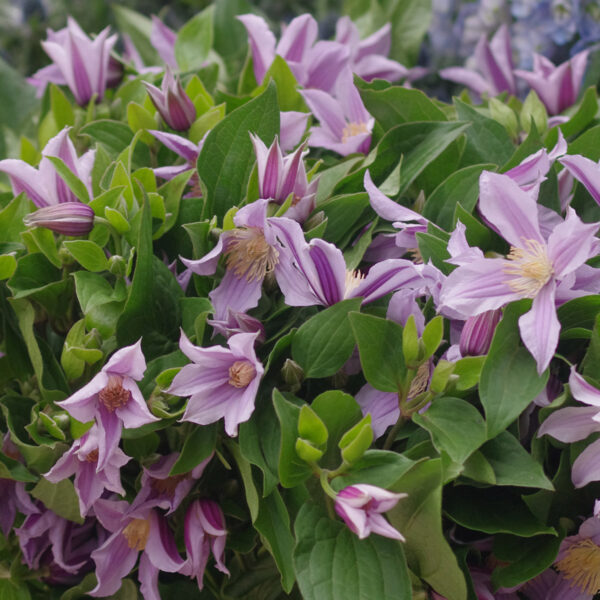
The Breeding Process
The breeder takes care of the pollination of the clematis with pollen stamen and pistils. With a clear goal: a specific characteristic; better and stronger flowers, and above all, something that is not yet available in the market. The 'parents' are carefully selected. And after pollination, the waiting starts. The seeds are sown, grown, and weaned. After two or three years, it is visible whether the plant has the right characteristics and the first selection follows. Only the best are selected — the X-factor of the flora. Then selection is increased by taking cuttings to multiply faster.
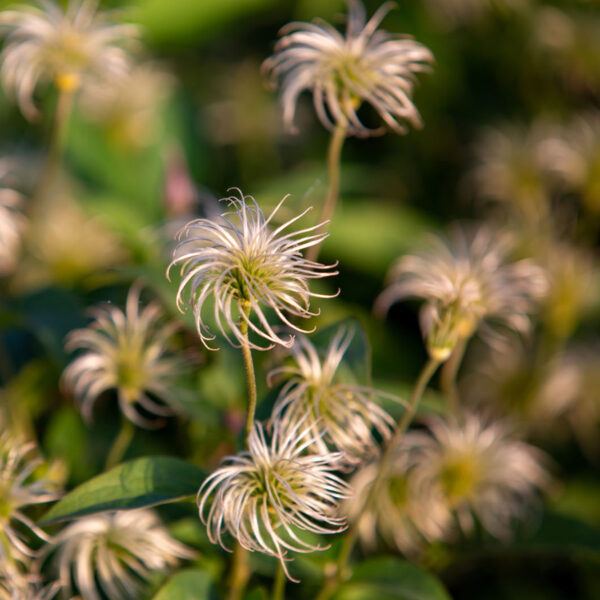
Off to Africa
After two years of multiplying, and taking cuttings, a part can go to the Marginpar farm in Tanzania. It is tested whether they also grow well there, whether they are resistant to fungi, how easily they multiply, the vase life, and so on. Jan's son Jos van Zoest travels there regularly to investigate and guide the process of the new species. And to 'pull the plug' when necessary.
If a winner has emerged, only then does multiplication starts. And when there is a field full of them it can be introduced to the markets. There needs to be sufficient supply to meet the demand all year round.
In 2006 it happened. The Clematis Amazing® Blue Pirouette is the first clematis cut flower to be introduced and embraced. It then takes five years for a successor to come, but after that, it goes fast. New cultivars are added to the assortment almost every year.
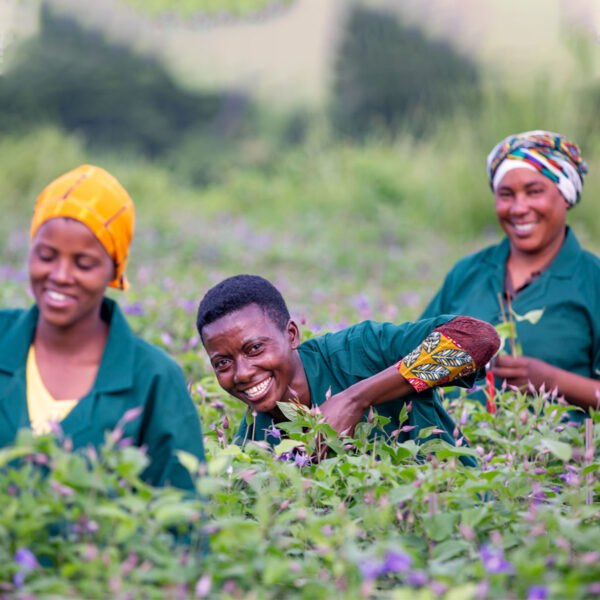
Clematis Amazing® Kyiv followed in 2011 and Clematis Amazing® Star River was added in 2012. Marginpar received the prestigious Holland Tulip Award from Flora Holland in 2014 for the latter. In the spring of 2015, Clematis Amazing® London was introduced at the Country Living Fair in London, and in the course of the same year also Clematis Amazing® Geneva, Clematis Amazing® Rome, and Clematis Amazing® Oslo entered the stage. Clematis Amazing® Miami was added to the range in 2017. Clematis Amazing® Tokyo and Clematis Amazing® Kibo followed in 2018, and Clematis Amazing® Shira in 2019.
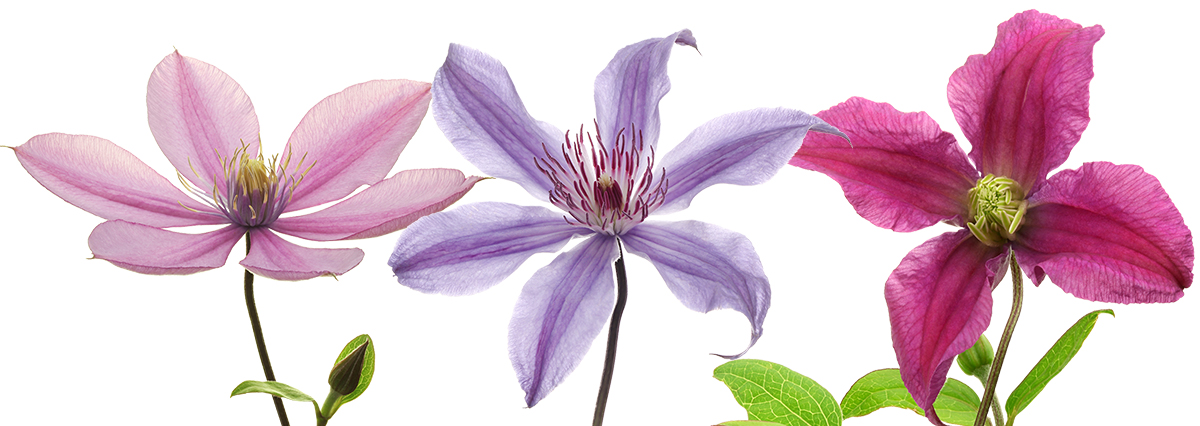
In 2020 a brand-new variety is introduced: The Clematis Amazing® Havana! The newcomer, Havana, is blue/lilac in color with a dark lilac stripe on the back of her petals. Her heart is easy to look at, the white stamens have deep purple tips. A beautiful sight when the flower opens and a special feature among the cut clematis. This variety has a large flower at the top, and four smaller buds on the side branches, which open slowly. The Clematis Amazing® Havana is available since May 2020, exclusively at Marginpar.
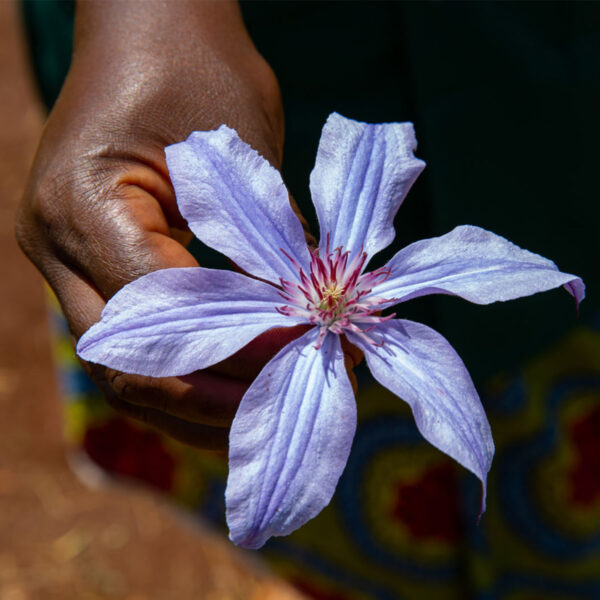
Some Clematis Facts for Florists
Lifespan
The average lifespan is around 10-14 days. In a warm or dark environment, the lifespan will be shorter. If the environment is light and cool, the branches can flower nicely for at least 3 weeks.
Water lover
The clematis loves fresh, clean water and is a heavy drinker. She does not like to be put on floral foam. We suggest using water tubes for special designs.
Amazing property
The clematis cut flower has the special property that the flowers and buds stand up again when they are used diagonally or horizontally. Most cut flowers cannot do this. The Clematis Amazing® Tokyo, when used in the 90cm length, is an excellent example of this special feature. Due to the long length, the stem can be placed laying down (with the end in a water tube), while the soft pink flowers will turn upwards. Imagine this flower in a wedding design!
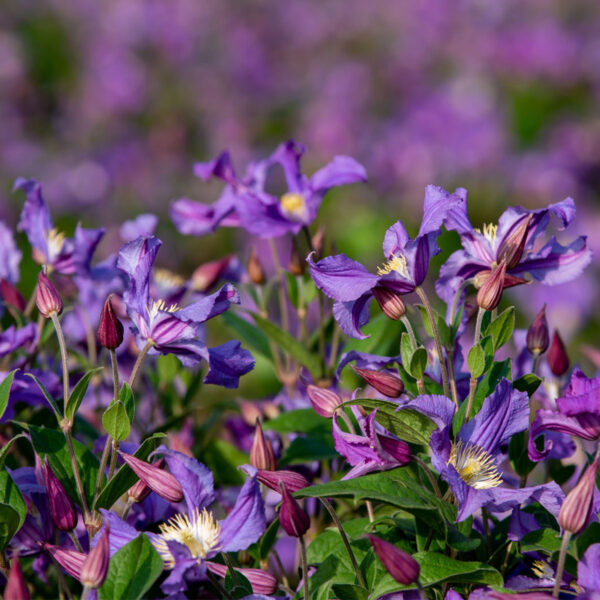
Clematis Amazing® Vienna
Great breeding success was the creation of a white clematis. This flower has endless possibilities: bridal work, winter designs, a romantic bouquet with pastel or vintage colors... Anything goes. Clematis Amazing® Vienna has one large flower on top and charming tendrils, but her most special feature is her color: the petals are pure white, making it easy to fit in any design. But you will see that something magical can happen when Vienna can take the limelight on its own.
Watch how Clematis Amazing® Vienna blooms in this wonderful 35-second timelapse.
The Art of Breeding Clematis
So, imagine that 99.9% of your work leads to nothing. Would you continue with it? But what if the 0.01% that remains is so unique that you do not want to stop? Exactly that's the Art of Breeding. That is how a product like clematis, against all odds, has become a beloved flower for many purposes. Florists who are not quite familiar with this flower are cordially invited to go work with this flower. Keep in mind the earlier instructions and you will bedazzle your customers.

